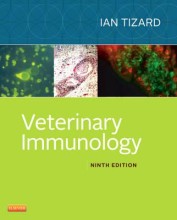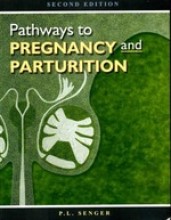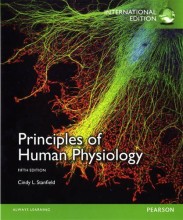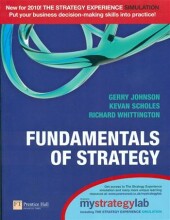Summary: Veterinary Immunology | 9781455703623 | Ian Tizard
- This + 400k other summaries
- A unique study and practice tool
- Never study anything twice again
- Get the grades you hope for
- 100% sure, 100% understanding
Read the summary and the most important questions on Veterinary Immunology | 9781455703623 | Ian Tizard.
-
1 The Defence of the body
This is a preview. There are 18 more flashcards available for chapter 1
Show more cards here -
Difference between adaptive and innate
- in the way they recognize pathogens
- innate system -> binds molecules commonly expressed on many different microbes
- adaptive system -> generates a lot of completely new receptors that can bind a wild array of foreign moleculs
- bacteria and viruses require different systems because one originates outside the body and the other inside the body's own cells. -
2 Innate Immunity: The Recognition of Invaders
This is a preview. There are 29 more flashcards available for chapter 2
Show more cards here -
C-type lectin receptors
- proteins that bind carbohydrates in a calcium dependent manner
- many different types of lectins
- some are cell surface PRRs -
3 Innate Immunity: Proinflammatory and Antimicrobial Mediators
This is a preview. There are 13 more flashcards available for chapter 3
Show more cards here -
Damaged tissue generates
- broken cells realease DAMPs
- invading microbes provides PAMPs
- pain due to tissue damage -> sensory nerves release bioactvice peptides
-> This mixture attracts leukocytes and acts on blood vessels -
PAMPs or DAMPs bind to PRRs
-> mediator molecules (also called cytokines) are releases by signaling cells
-> mediator cells bind to receptors on receiving cells
-> triggers their respons -
4 innate immunity: neutrophils and phagocytosis
This is a preview. There are 12 more flashcards available for chapter 4
Show more cards here -
Prime function of inflammation
- to ensure that phagocytic cells intercept invading microbes and destroy them -
5 innate immunity: Macrophages and recovery from inflammation
This is a preview. There are 9 more flashcards available for chapter 5
Show more cards here -
Fate of foreign material
- which macrophages an animal uses depends on the animal
- rate of immune elimination depends on whether or not the body has encountered the foreign before
- foreign material in tissue -> inflammation -> dentritic cells and macrophages initiate an adaptive immune response
- patricles that enter the blood from the intestines are removed by macrophages in the liver- particles that enter the lympatic system will be trapped in lymph nodes - particles absorbed in the lungs are cleared to lymph nodes -
6 systematic repsonses to inflammation
This is a preview. There are 7 more flashcards available for chapter 6
Show more cards here -
Il1, IL6 and TNF-alpha
- induce skeletal muscle -> increase protein catabolism -> releases amino acids
- free amino acids are used to make cytokines and antibodies + increase protein synthesis and secretion in the liver -
Systemic inflammatory response syndrome
- SIRS = after massive tissue damage DAMPs escape into the bloodstream -> sentinel cells produce cytokines -> results in acidosis -> possibly lethal shock -
Protein misfolding disease
Amyloidosis = buildup of insoluble protein (amyloid) in tissue due to wrong folding
- reactive amyloid is associated with chronic inflammation -
7 innate immunity: The complement system
This is a preview. There are 17 more flashcards available for chapter 7
Show more cards here -
Other consequences of complement activation
- opsonization
- promoting post inflammatory healing by removal of apoptotic cells
- inflammation
- blood coagulation (stolling)
- chemotaxis
- immune regulation
- Higher grades + faster learning
- Never study anything twice
- 100% sure, 100% understanding

































